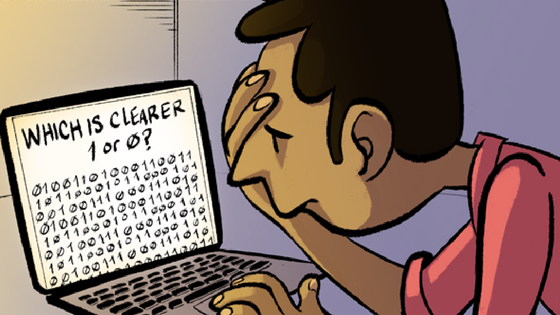Originally Published July 7, 2017
What your patients need to know about these concerning new apps
Online eyewear retailer Warby Parker has given optometrists one more reason to dislike them. Now, in addition to offering customers a greater selection of eyewear at a lower cost than most brick-and-mortar eye doctors can offer, Warby Parker is introducing an online eye test.
The company announced its new mobile app-based eye test, called Prescription Check, in May. The response from optometrists – even the American Optometric Association (AOA) – was fast and, for the most part, furious. Here’s why eye doctors are upset, and what you need to let your patients know about online eye tests.
Safety is a major issue
Online eyewear retailers – BonLook, Lookmatic, and Eyefly are some others – have come under fire from optometrists before. Patient safety is more of a concern to eye doctors than the threat to their bottom lines. While online retailers would have consumers believe that cost is the only difference between buying frames from them versus an optometrist, that’s simply not true, warns the Review of Optometry.
Studies show that nearly half of all prescription glasses ordered online are inaccurate or failed to meet safety standards.
According to the AOA, a recent study found that nearly half of all glasses (44.8 percent) ordered online either contained an inaccurate prescription or didn’t meet safety standards designed to protect the eyes. Nearly a quarter (23 percent) of the lenses failed impact resistance testing – a major safety issue. Children’s glasses performed even worse, with 29 percent failing impact testing.
The safety of online eye tests is even more concerning.
Why online tests cannot replace doctors
What eye doctors know and patients may not is that an online eye test does not evaluate the health of your eyes. Some states already restrict mobile eye tests. Last year the AOA filed an FDA complaint against Opternative, stating that the app “poses significant health risks to the public.”
In fact, online eye tests would more accurately be called “online vision tests,” since they usually only measure visual acuity and refractive error, notes the website AllAboutVision.com.
“Most people don’t understand that a vision test is only one piece of what happens in an eye exam,” Maryland optometrist Alan Glazier told Inc. magazine. “You could have glaucoma or diabetes, and only a doctor is going to check for that. [These apps] want to eliminate doctors from the process, and that’s horrible.”
Warby Parker’s website states that its new Prescription Check app “isn’t meant to replace a comprehensive eye exam.” Using a smartphone and another computer, the app guides users through a series of questions and tests that measure refractive error. Then, within 24 hours, “an eye doctor will assess whether your vision has changed since your last prescription. If it hasn’t changed, the doctor will write you an updated prescription that you can use anywhere! If it has, the doctor may recommend that you get a comprehensive eye exam.”
“An online eye test does not completely cover any one of the 12 components of a regular in-person, comprehensive eye exam.” – American Optometric Association
The AOA is not convinced – and in fact issued a strongly worded statement “condemning” app-based eye exams, reported Invisionmag.com. “When patients rely on an app for an eyeglass or contact lens prescription, they can receive inaccurate or misleading information and potentially delay essential sight saving treatment,” stated the AOA’s letter. “An online eye test does not completely cover any one of the 12 components of a regular in-person, comprehensive eye exam.” The AOA added, “Touting virtual technologies that are not proven and subvert care sets us all back.”
What your patients need to know
Is there any value at all in online vision tests? Perhaps, according to AllAboutVision.com. “An online vision test can enable you to quickly obtain a valid eyeglass prescription so you can replace your glasses. This can be very useful if you break or lose your eyewear when vacationing away from home or you cannot schedule an appointment with your eye doctor for some other reason.”
Despite this limited benefit, you’re better off steering your patients away from online eye tests, which use relatively new technology that hasn’t been extensively studied yet.
By educating patients, you show them that there are some things a trusted eye care professional can provide that apps and websites can’t.
By taking the time to listen to patients and educate them, you will show them that there are some things a trusted eye care professional can provide that online retailers and apps can’t. Sharing videos on your website and social media pages such as “The Importance of Complete Eye Exams” and “Only Buy Contacts from Eye Care Provider” is an easy and powerful way to educate prospective patients on why an appointment with a certified eye care provider is necessary. Then, once patients are in the door, using Rendia consultation tools like Exam Mode takes only a minute but helps patients understand you offer an experience that no online test can match.
Sign up for a free 14-day trial of Rendia to start converting online exams into real patients today.


